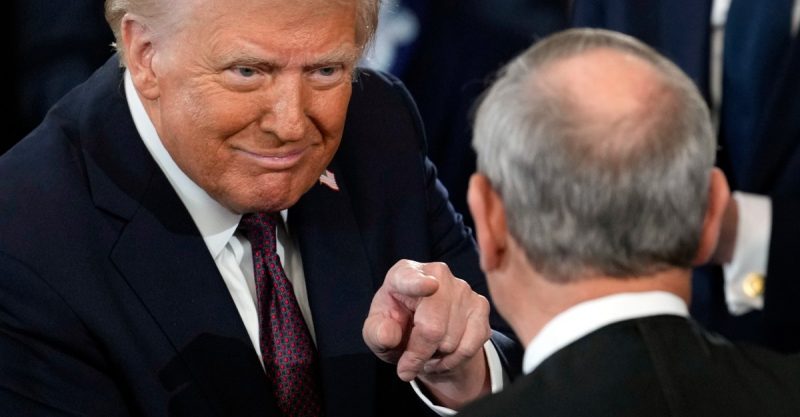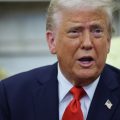
The Supreme Court is poised to make a decision in *Trump v. Wilcox*, a case with potentially devastating implications for the balance of power in the United States. This case challenges the independence of several federal agencies, potentially stripping them of their autonomy and placing them firmly under the control of the president. At the heart of the matter is the controversial ‘unitary executive’ theory, which argues for sweeping presidential power over all federal entities outside of Congress and the judiciary.
The Supreme Court’s conservative majority has consistently shown a willingness to expand presidential power, even going so far as to rule in *Trump v. United States* (2024) that the president can use the powers of his office to commit crimes. This case builds upon earlier decisions that have chipped away at the independence of federal agencies, limiting Congress’s ability to shield government officials from presidential control. The *Wilcox* case directly challenges the precedent set in *Humphrey’s Executor v. United States* (1935), which upheld the protection of certain federal officials from arbitrary dismissal.
The potential consequences of a ruling in favor of Trump are profound. The most significant threat is to the Federal Reserve’s independence. The Fed’s ability to set interest rates based on expert economic judgment, rather than political expediency, is crucial to the stability of the US economy. History demonstrates the dangers of politicizing the Fed; Arthur Burns’ actions during the Nixon administration, influenced by political pressure, are widely blamed for the stagflation of the 1970s.
The legal basis for the unitary executive theory is itself highly contentious. It stems from a broad interpretation of the Constitution’s vesting clause, which grants “executive Power” to the President. However, the vagueness of the term “executive” allows for vastly different interpretations. The historical evidence supporting the claim that the President must have complete control over all aspects of the executive branch, including the power to prosecute crimes, is weak. Despite this, the Supreme Court’s conservative justices have clearly indicated their support for this expansive view of presidential power.
Justice Brett Kavanaugh’s past statements regarding his desire to overturn *Morrison v. Olson*, a case that limits presidential control over certain officials, further underscores the likelihood of a ruling that favors Trump. The justices’ belief in the unitary executive theory, regardless of its tenuous historical grounding, is the driving force behind this case. A decision in Trump’s favor could not only end the independence of all federal agencies, but potentially make him the most powerful president in American history.
The implications extend far beyond the legal realm. The current political climate, characterized by constantly shifting tariffs, disregard for court orders, and erratic policy decisions, raises serious concerns about the potential consequences of granting the president even greater power. The possibility of Trump gaining complete control over the Federal Reserve is particularly alarming, as it would give him unprecedented influence over the economy, potentially leading to economic instability on a global scale. The *Wilcox* case is not just a legal battle; it is a fight for the very fabric of American democracy.










